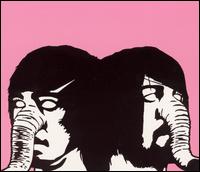
Dr. Faustus by Christopher Marlowe (4.5/5)
Christopher Marlowe is fucking cool. What other Renaissance writer was a goddamn spy? I mean, I like Shakespeare’s plays and all, but as a person he’s boring unless he’s being played by Joseph Fiennes. I often pit two historical figures against one another in my mind, and I wonder what would happen if these two fought. I think I’ve already mentioned what would happen to Kubrick if he ever fought Kurosawa (see the Hidden Fortress review). If Shakespeare and Marlowe fought, Marlowe would bust out his super secret digital watch—that’s secretly a laser—and he’d slice Shakespeare in half. Maybe ‘Speare would have a deadly quill like the Joker had in Batman, but a deadly quill versus a laser? I think we know who would win. I know the digital watch/laser is a bit silly because they didn’t have digital watches back then, but at the very least he’d have an hourglass with a secret laser.
Reading Dr. Faustus I realize what a shame it is Marlowe died so early. Marlowe’s ability to combine drama and comedy was light years ahead of Shakespeare’s. It wasn’t until the second half of Shakespeare’s career that he started writing dark comedies, but Marlowe was interjecting his humor with a dark twist right away with plays like Dr. Faustus and The Jew of Malta. If Marlowe hadn’t dies so early (in a fight over who was going to pay the bill no less—fucking cool!) then maybe there would have been two playwriting giants in London competing against one another. Just imagine the masterpieces that would have ensued. I bet they would have made King Lear look like A Comedy of Errors.
This is the second time I’ve read Dr. Faustus, and I had forgotten how anti-Catholic it is. The story takes place mostly in Wittenberg, Germany where Martin Luther wrote his famous 95 theses. The location already sets up the tenuous relationship between Protestants and Catholics. This relationship, obviously biased against Catholics, is further represented in the good angel and bad angel that appear to Dr. Faustus several times. The good angel repeats over and over to Dr. Faustus that he can repent at any time and come back into good graces, while the bad angel keeps on telling him it’s too late. The obvious analogy is that the good angel represents the Protestant idea of justification by faith. Not surprisingly, one of the groups of people who Marlowe is rumored to have spied on were Catholics intent on overthrowing what they saw as England’s Protestant government. Furthermore, the first thing Dr. Faustus does when he makes his famous bargain is to play a practical joke on the Pope.

The trick Marlowe plays on the audience is even greater than the trick played on Faustus. Marlowe actually gets us to care about Faustus by the end of the play. This is either a trick to show us how close every one of us is to making a Faustian bargain, or it’s a trick to show us how unfair these religious traditions were. After all, what did Faustus do that was so wrong? He goes into the deal with plans for making himself a despot, and ends up using all of his power to fetch grapes for debutants and summon Helen of Troy so that others may see her beauty. (Dr. Faustus has "phenominal cosmic power," and all he can manage is playing a few practical jokes and impressing people with out of season fruits.) He’s never punished for his bad acts, but rather because of who he pledged his allegiance to. Over the course of twenty-four years Faustus has actually become a somewhat better person. His greatest crimes are nothing more than playing practical jokes on peasants. He’s not perfect, but he’s also not deserving of eternal damnation.
I see Dr. Faustus as a critique of religion. Others may find that it only reinforces their beliefs, and that’s what makes the text so good. The Faustian bargain finds its way into literature time and again, but it means something different to each author; likewise, Dr. Faustus means something different to each reader.





